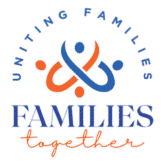For many individuals with special needs, such as those with autism spectrum disorder (ASD), ADHD, or other developmental differences, navigating social interactions and managing emotional challenges can be particularly complex. While individual therapy offers personalized attention, group therapy provides a unique and powerful environment for growth, learning, and connection. This approach harnesses the dynamics of peer interaction and shared experiences to build essential skills, foster self-esteem, and create a supportive community.
Advantages of Group Therapy for Special Needs Individuals
Group therapy offers a distinct set of benefits that complement individual therapeutic interventions, especially for individuals with special needs:
- Real-World Practice: Groups provide a safe, structured setting to practice social skills in real-time, receiving immediate feedback and guidance from therapists and peers.
- Reduced Isolation: Many individuals with special needs experience feelings of isolation or being misunderstood. Group therapy fosters a sense of belonging and community, showing them they are not alone.
- Peer Modeling: Observing peers successfully navigate social situations or cope with challenges can be incredibly powerful for learning and motivation.
- Multiple Perspectives: Hearing diverse viewpoints and strategies from others with similar experiences can broaden an individual’s understanding and problem-solving abilities.
- Cost-Effectiveness: Group therapy is often more affordable than individual therapy, making it a more accessible option for many families.
- Increased Self-Esteem: Successfully participating in a group and forming connections can significantly boost confidence and self-worth.
Types of Group Therapy Programs Available
Group therapy for individuals with special needs is diverse, often tailored to specific age groups, diagnoses, or skill development goals. Some common types of programs include:
- Social Skills Groups: These are highly structured groups focused on explicitly teaching and practicing social behaviors such as turn-taking, initiating conversations, understanding social cues, empathy, and conflict resolution. They often use role-playing, games, and direct instruction.
- Psychoeducational Groups: These groups focus on providing information and education about a particular condition (e.g., ADHD, anxiety) and teaching coping strategies. Participants learn about their diagnosis, common challenges, and practical tools for management.
- Support Groups: While sometimes facilitated by peers, many support groups for individuals with special needs are led by professionals. They offer a safe space for sharing experiences, offering mutual support, and discussing challenges related to their condition.
- Cognitive Behavioral Therapy (CBT) Groups: These groups apply CBT principles in a group setting to help individuals identify and change unhelpful thought patterns and behaviors related to anxiety, depression, or anger management.
- Process-Oriented Groups: These groups delve into interpersonal dynamics and communication patterns within the group itself, helping members gain insight into how they relate to others and improve their social interactions.
- Creative Arts Therapy Groups: Utilizing art, music, or drama, these groups offer alternative avenues for expression, emotional processing, and social interaction, particularly beneficial for those who struggle with verbal communication.
Choosing the Right Group Therapy Program
Selecting the ideal group therapy program requires careful consideration of the individual’s specific needs, personality, and therapeutic goals.
Social Skills Development in Groups
For children and adolescents, social skills groups are paramount. When evaluating a program focused on social skills development, consider:
- Targeted Skills: Does the group explicitly teach the social skills your child needs to develop (e.g., greetings, sharing, joining play, managing emotions in social settings)?
- Structure and Activities: How are sessions structured? Do they use engaging activities like role-playing, games, or video modeling?
- Group Composition: Is the group size appropriate? Are participants similar in age, developmental level, and social skill needs to ensure effective peer interaction?
- Therapist Expertise: Does the group leader have specialized training and experience in social skills intervention for individuals with your child’s specific needs (e.g., Board Certified Behavior Analyst for ABA-based social skills, licensed therapist for anxiety-focused groups)?
Peer Learning and Support Benefits
The power of peers is a significant advantage of group therapy. Look for programs that:
- Facilitate Connection: Create an environment where participants feel comfortable sharing and connecting with one another.
- Encourage Mutual Support: Foster empathy and understanding among group members, allowing them to offer advice and encouragement.
- Promote Role Modeling: Provide opportunities for participants to observe and learn from each other’s successful strategies.
- Reduce Stigma: Being in a group with others who share similar challenges can normalize their experiences and reduce feelings of isolation or shame.
Group Therapy vs. Individual Therapy
It’s not always an either/or decision between group and individual therapy. Often, the most effective approach is a combination:
- Individual Therapy Strengths: Offers highly personalized attention, allows for deep exploration of sensitive issues, and can be crucial for addressing foundational challenges or significant trauma.
- Group Therapy Strengths: Provides a naturalistic setting for practicing social skills, offers a sense of community, and exposes individuals to diverse perspectives and coping strategies from peers.
- Combined Approach: Many individuals start with individual therapy to build foundational skills and address immediate concerns, then transition to or supplement with group therapy to practice newly learned skills in a social context and gain peer support.
Family Group Therapy Options
The impact of special needs extends to the entire family. Family group therapy can provide invaluable support:
- Parent Support Groups: These groups, often facilitated by professionals, allow parents to share experiences, strategies, and emotional support. They can help reduce caregiver burnout, improve coping skills, and offer practical advice.
- Sibling Support Groups: Designed for siblings of children with special needs, these groups provide a safe space to discuss unique challenges (e.g., feelings of jealousy, responsibility, neglect) and build connections with peers who understand their experiences.
- Family Systems Therapy: Some group programs involve the entire family unit to improve communication, address family dynamics impacted by the special need, and develop collective coping strategies.
When seeking group therapy options in Miami, Florida, consider reaching out to local organizations like Nicklaus Children’s Hospital, Bright Start Possibility (for ABA-based groups), Vita-Cog Community Health, or neuro-affirming therapy practices like Supportive Engagement. Websites like Psychology Today can also help you find specific group listings. Don’t hesitate to ask about the therapist’s qualifications, group goals, session structure, and family involvement.
Group therapy offers a powerful and unique pathway for individuals with special needs to develop crucial social skills, gain confidence, and build meaningful connections. By embracing the strength of community and peer support, we can empower them to thrive in all aspects of their lives. At Families Together FL, we are dedicated to connecting families with the diverse therapeutic resources available to support every member of the family.

